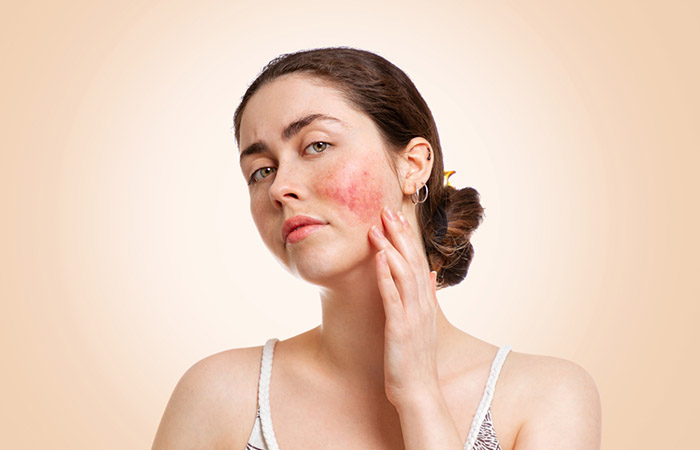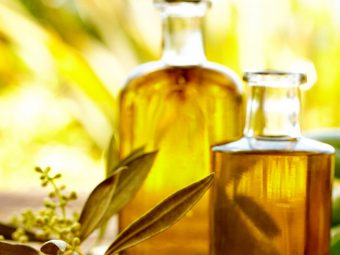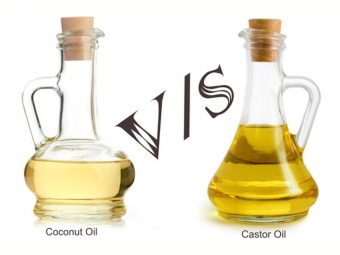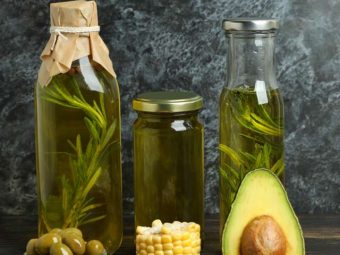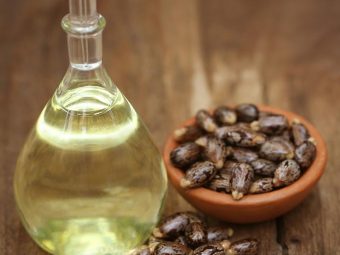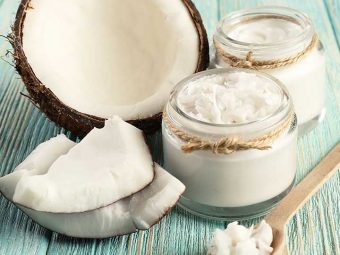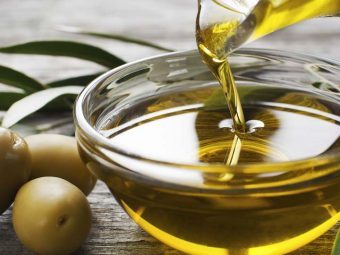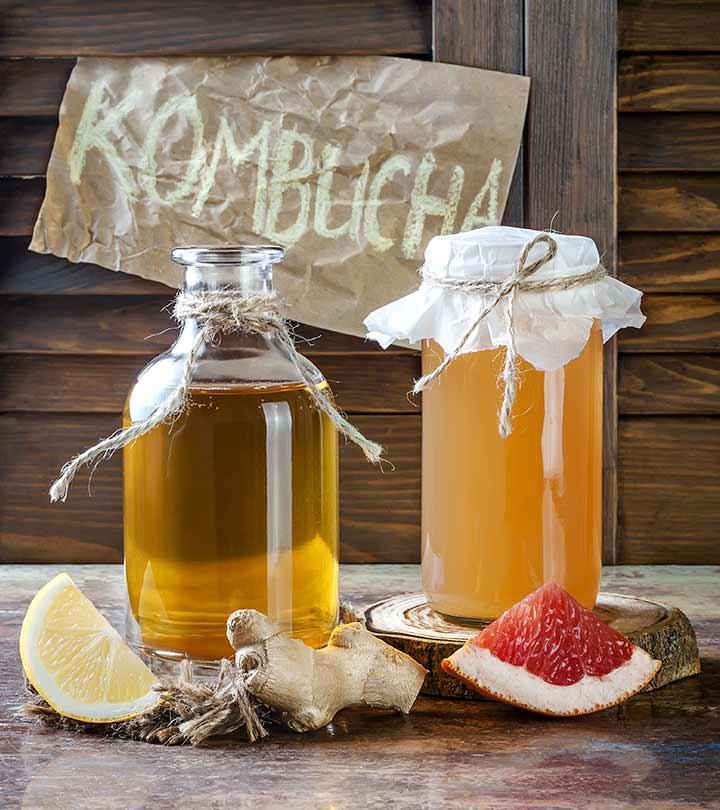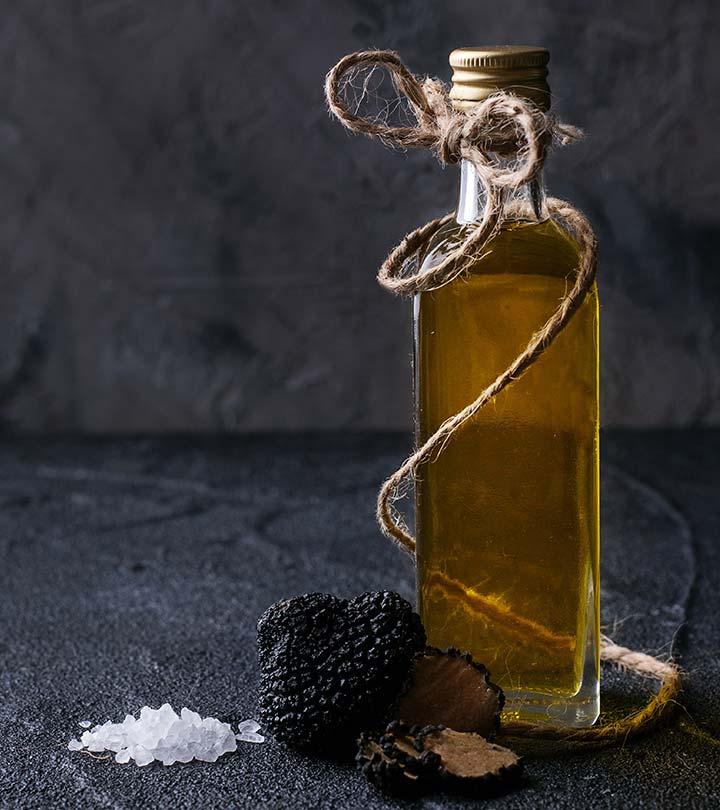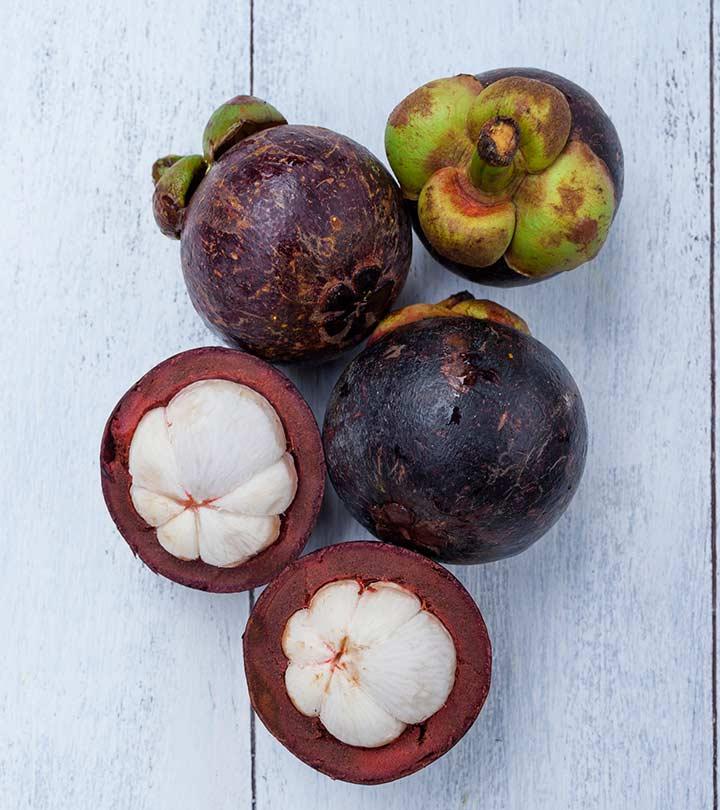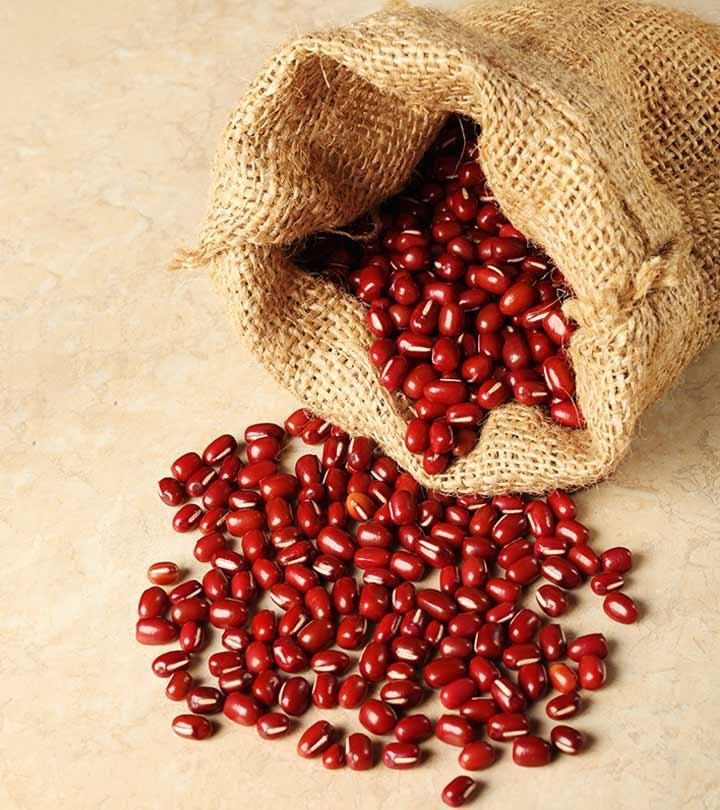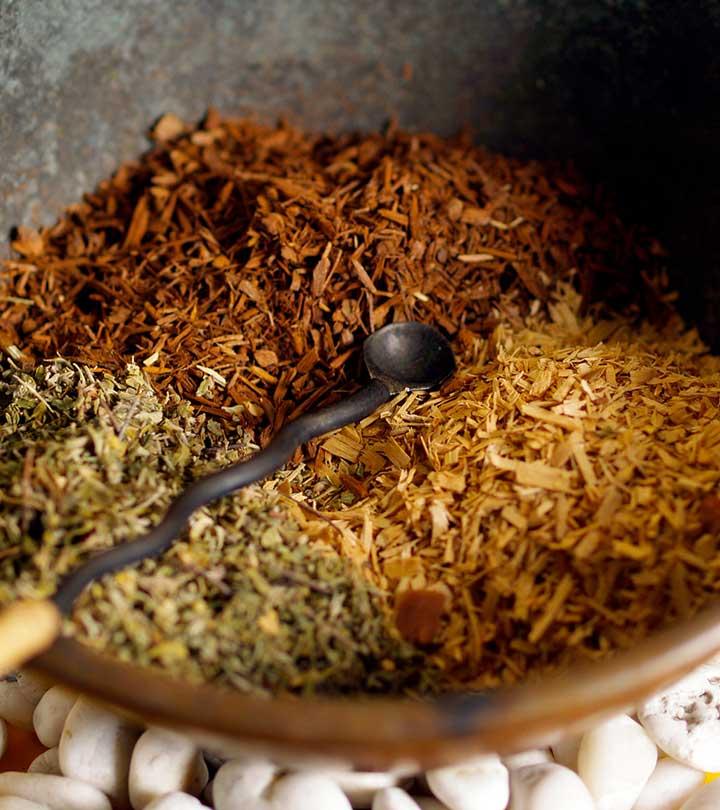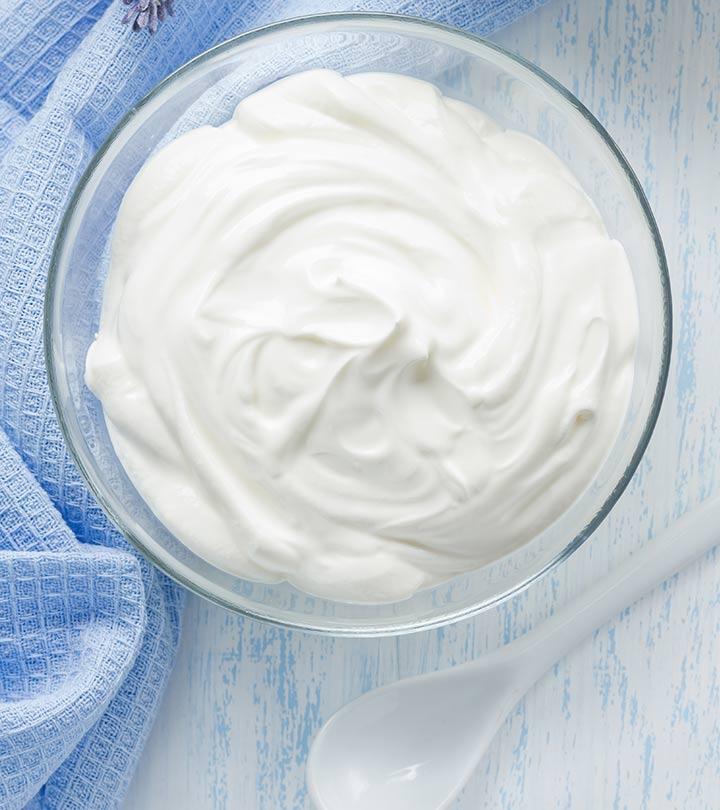Coconut Oil Vs. Olive Oil: Which Oil Is Healthier?
While both are healthy, understand why olive oil has the edge over coconut oil in the end.
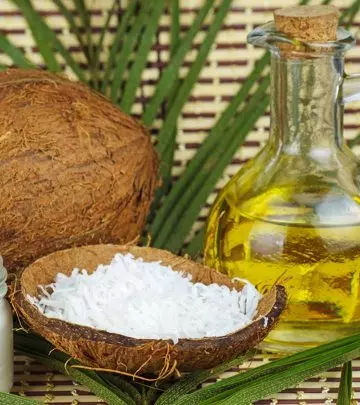
Image: ShutterStock
Coconut oil vs. olive oil – the gastronomy community has been engaged in this debate for quite a while now. Olive oil, a mainstay of the Mediterranean diet, is widely used all over the world. It balances the acidity of high-acid foods like tomatoes. However, coconut oil has been gaining popularity lately as well, especially in the tropical diet. South Asian cuisine uses coconut oil mainly for savory dishes, though it has since become popular in baked products as well.
Both of these oils are packed with vitamins E and K and other natural antioxidants. They are an excellent source of nutrition. But if you had to pick one, which one would you pick? Read on to explore their nutritional differences, health benefits, and side effects to find out which one is better for you. Keep reading!
In This Article
What Is Coconut Oil?
The oil extracted from the kernel of mature coconuts is called coconut oil. Coconut (Cocos nucifera L.) is used in cooking for its flavor and health benefits. This tropical fruit is also used for coconut water, coconut milk, coconut flour, and delicious meat.
There are two main types of coconut oil (1):
- Copra Oil (CO): It is extracted by crushing dried coconut kernels, refined, bleached, and deodorized.
- Virgin Coconut Oil(VCO): It is extracted from shredded wet coconut kernels by pressing. It is richer in nutrients (vitamin E) and bioactive compounds (like polyphenols, which are potent antioxidants).
Coconut oil is a yellowish-white solid or semi-liquid oil. This is because of its fat content.
Stephanie Hnatiuk (RD, CDE, PTS) says, “Coconut oil is made from mostly saturated fats. You can tell this by the fact that it is solid at room temperature.”
Coconut oil has a high content of saturated fats (about 92%). This makes it more stable for long-term storage and for use as a cooking oil as it prevents oxidationi XA chemical reaction that occurs when the oil is exposed to oxygen, leading to its degradation. and rancidity. It is perfect for shallow frying (1).
A nutrition blogger on Medium compares and shares his understanding of the stability of both oils, in one of his blog posts. “I don’t recommend cooking with olive oil at all. But if you are going to cook with it, it’s got to be on an extremely low heat. And again, if it smokes, you’ve ruined it. Now, what you can do (one of my favorite things to do) is to cook with virgin coconut oil. It’s a really stable oil, and you can use a lot more heat with it (i).”
However, recent studies have linked high saturated fat intake to chronic conditions, such as obesity, high blood pressure, type-2 diabetes, and deterioration of heart health. They recommend limiting saturated fat intake or consuming oils rich in polyunsaturated fats and monounsaturated fats, such as olive oil (2).
 Quick Tip
Quick TipOlive oil is said to be a healthier alternative to coconut oil. Learn more about it in the next section.
What Is Olive Oil?
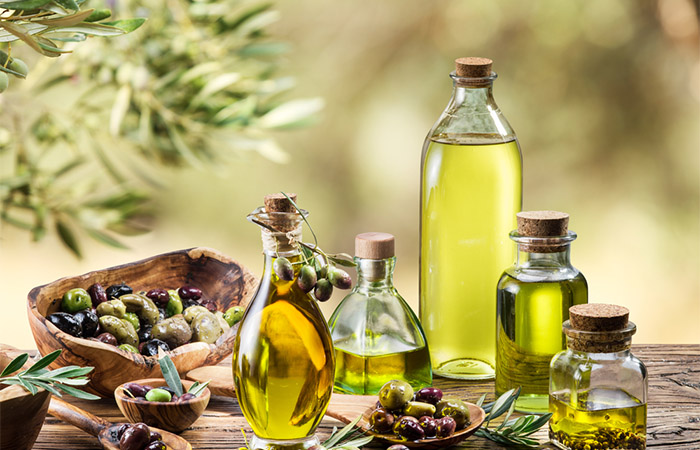
Olive oil is extracted from the olive pulp under high pressure. Olive (Olea europaea L.) is the fruit of a Mediterranean tree. It is famed for its culinary uses in salad dressings, pasta, and other savory dishes (3).
There are four main types of olive oil (4):
- Virgin olive oil: It is rich in nutrients and beneficial bioactive compounds.
- Common olive oil
- Pomace olive oil
- Refined olive oil
Olive oil from unripe fruit has a green tint, while the other varieties have a clear yellow color. Every country that grows olives produces oils with different characteristics.
Hnatiuk says, “This oil is unsaturated, and you can tell this by the fact that it is a liquid at room temperature.”
Mono- and polyunsaturated fatty acids are abundant in olive oil. They are associated with a host of health benefits.
Paula Doebrich (MPH, RDN) says, “Olive oil is rich in polyunsaturated fat (also known as the good fat) and low in saturated fat. This makes it healthy for the heart because it could help lower bad (LDL) cholesterol and increase good (HDL) cholesterol. Olive oil also is rich in some antioxidants, such as vitamin E.”
Coconut oil and olive oil differ not only in their physical properties but also in their nutritional value. Find out more in the next section.
Coconut Oil Vs. Olive Oil: Key Comparisons
Nutritional Information
Here is a comparison between the nutrients and minerals found in 100 g of coconut oil and 100 g of olive oil (5), (6):
| Nutrient | Coconut Oil | Olive Oil |
|---|---|---|
| Calories | 895 kcal | 884 kcal |
| Carbohydrates | 0.84 g | 0 g |
| Total lipids (Fat) | 99.1 g | 100 g |
| Sodium | 1 mg | 2 mg |
| Potassium | 0 mg | 1 mg |
| Iron | 0.05 mg | 0.56 mg |
| Zinc | 0.02 mg | 0 mg |
| Calcium | 1 mg | 1 mg |
| Vitamin E | 0.11 mg | 14.4 mg |
| Vitamin K | 0.6 µg | 60.2 µg |
A quick glance reveals that olive oil has a better nutritional profile than coconut oil. These two oils differ in their natural bioactive compounds too.
Hnatiuk says, “Olive oil contains more unsaturated fats, which have positive effects on our cholesterol levels. Olive oil also contains more polyphenols, which are beneficial plant compounds that can reduce inflammation and may even support a healthy gut microbiomei XRefers to the healthy bacteria in the intestine that break down food, help the body absorb nutrients, and boost digestion. .”
Both oils are high in fat but have different types of fats. The major fatty acids found in both oils are as follows (3), (7):
| Coconut Oil | Olive Oil |
|---|---|
| Lauric acid (32-51%) | Oleic acid (57–80%) |
| Myristic acid (17-21%) | Linoleic acid (7–19%) |
| Palmitic acid (6.9 -14%) | Linolenic acid (0.6–0.8%) |
| Palmitic acid | |
| Stearic acid |
Lauric acid, myristic acid, palmitic acid, and stearic acid are saturated fatty acids. Oleic acid is a monounsaturated fatty acid. Linoleic acid and linolenic acid are essential polyunsaturated fatty acids.
Hnatiuk adds, “Coconut oil, on the other hand, has very high saturated fats. These can raise our ’bad’ (LDL) cholesterol levels. Coconut oil contains more medium-chain triglycerides (MCT) than other types of fats. These are unique because our bodies tend to prioritize using them as an energy source. However, excess intake of these fats can still lead to body fat storage.”
Both oils’ health benefits are similar as they contain the same nutrients. However, they differ in a few essential fatty acids, resulting in a few unique health benefits. Learn all about them below.
Potential Health Benefits
Coconut oil and olive oil share many health benefits.
1. May Promote Healthy Skin
Coconut oil and olive oil have rich fatty acid profiles. They are also rich in vitamins E and K, which benefit skin health.
Coconut oil is said to protect and nourish the skin barrier and minimize sun damage. It may also reduce wrinkles and boost skin rejuvenation. It is widely used in face masks and imparts a radiant glow to the skin. However, it is not a great option for acne-prone skin.
Olive oil supposedly hydrates and rejuvenates the skin and treats blackheads and whiteheads naturally.
2. May Improve Hair Health
Anecdotal evidence suggests that coconut oil protects, moisturizes, and strengthens hair. Its antibacterial and antifungal properties also make it a great option for treating dandruff.
Audrey Victoria, a beauty vlogger, shared her experience of using coconut oil overnight for her hair in her video. She said, “My hair looks a lot more shiny and less frizzy after using coconut oil compared to when I don’t use it. The split ends don’t look as apparent as they did before (ii).”
Olive oil is said to moisturize, protect, and strengthen the hair. This makes it an excellent option for dry hair. It is also supposedly effective in treating dandruff.
3. Good Source Of Antioxidants
Coconut oil is rich in antioxidants like phenolic compounds. Olive oil also contains antioxidants like phenol alcohols and acids, secoiridoids, lignans, and flavones (8), (9).
Antioxidants scavenge free radicals and prevent oxidative stressi XIt occurs when the body has low antioxidant levels and may cause cell damage, inflammation, and long-term issues like diabetes. . This protects the skin against sun damage and signs of aging.
4. May Reduce Inflammation
Studies suggest that coconut oil reduces inflammation by reducing inflammatory signals and enhancing the skin’s barrier function (10). Olive oil is rich in phenolic compounds such as oleocanthal, which exerts potent anti-inflammatory properties (11).
Chronic inflammation plays a role in the development of diseases like cancer, diabetes, cardiovascular disease, and degenerative joint diseases. These two oils help reduce inflammation and help ease the symptoms of these disorders.
5. May Fight Infections
Coconut oil contains lauric acid, capric acid, and caprylic acid. These fatty acids can inhibit the growth of bacteria like Bacteroides and Clostridium. Coconut oil is also effective against the Candida fungi (12), (13), (14).
The polyphenols in olive oil inhibit the growth of bacteria like Bacillus and Pseudomonas. Olive oil also inhibits the growth of Candida (15), (16).
The unique health benefits of these oils are as follows:
1. Olive Oil May Promote Cardiovascular Health
Olive oil contains unsaturated fatty acids and polyphenols. Olive oil consumption lowers LDL cholesterol and increases HDL cholesterol and insulin sensitivity. It also reduces oxidative damage to lipids and DNA (17).
Dietary olive oil reduces inflammation and blood vessel dysfunction. It also reduces blood pressure levels by reducing oxidative stress (17).
2. Coconut Oil May Help Treat Dental Caries
The bioactive compounds present in coconut oil prevent the growth of pathogens related to dental caries. Coconut oil pulling also reduces plaque. Hence, it could be used to maintain oral health at home (18), (19).
3. Olive Oil May Lower Blood Pressure
Olive oil is rich in polyphenols and oleic acid. These compounds reduce blood pressure. Several studies back olive oil’s positive effect in lowering blood pressure in patients with hypertension (consistent high blood pressure) (20), (21), (22).
Olive oil and coconut are also considered functional foods due to their nutrient-dense nature. Your diet should include these amazing oils. However, both of these oils are used differently. Find out more about them below.
How To Add Coconut Oil And Olive Oil To Your Diet
While olive oil can be used in a variety of cooking methods, it is a staple ingredient in Mediterranean cuisine. It is used to top pasta and in salad dressings, dips, and vinaigrettes.
Hnatiuk says, “Olive oil is a great choice for everyday cooking. This oil can be used for sauteing, making salads dressings, or drizzling on vegetables before roasting. Olive oil just can’t be used at very high temperatures, like for deep frying, because it will burn.”
Use coconut oil to sauté or stir-fry dishes. It is also excellent for frying and baking. Coconut oil is used for making cookies, cakes, and bread as well. You can replace butter with coconut oil.
Coconut oil is available in refined and virgin (unrefined) versions. Despite being healthier than refined coconut oil, virgin coconut oil is not preferred as it has a distinctive coconut flavor that may affect the flavor of your dish.
Hnatiuk adds, “Coconut oil should be used a little more sparingly, but it can still make an appearance when you want a little coconut flavor in your dish. Coconut oil can also be used at higher temperatures than olive oil without burning due to its high saturated fat content.”
 Quick Tip
Quick TipGet a feel for the culinary nuances of each oil using the easy recipes mentioned in the following section.
Popular Recipes
1. Olive Oil Dip
What You Need
- ½ cup of extra-virgin olive oil
- 2 garlic cloves
- 2 tablespoons of capers (drained)
- ½ teaspoon of dried oregano
- 2 teaspoons of fresh rosemary (chopped)
- 2 teaspoons of fresh thyme (chopped)
- 3 tablespoons of parmesan cheese (finely grated)
- Salt, as needed
- Fresh ground pepper, as needed
How To Prepare
- Finely mince the garlic and capers.
- Combine the oregano, rosemary, thyme, and cheese in a bowl.
- Season lightly with salt and pepper.
- Smush the herbs into the garlic and capers with the back of a spoon and add them to the bowl.
- Top off the dip with olive oil. Serve with bread cubes.
2. Spaghetti with Olive Oil and Garlic
What You Need
- 500 g spaghetti
- ⅓ cup of olive oil
- 6 garlic cloves
- ½ teaspoon of red pepper flakes
- ⅓ cup of fresh parsley (chopped)
- 1 cup of parmesan cheese (grated)
How To Prepare
- Cook the spaghetti and set it aside.
- Bring the garlic and oil to a gentle simmer in a skillet. Let them cook for about 6-7 minutes until the garlic has softened and begun to brown.
- Add about half a cup of pasta water to stop the garlic from cooking further.
- Add the cooked spaghetti to the skillet. Top it off with parmesan and parsley. Stir well to combine.
- Garnish the spaghetti with freshly grated black pepper, chili flakes, fresh herbs, and parmesan.
3. Coconut Oil Cookies
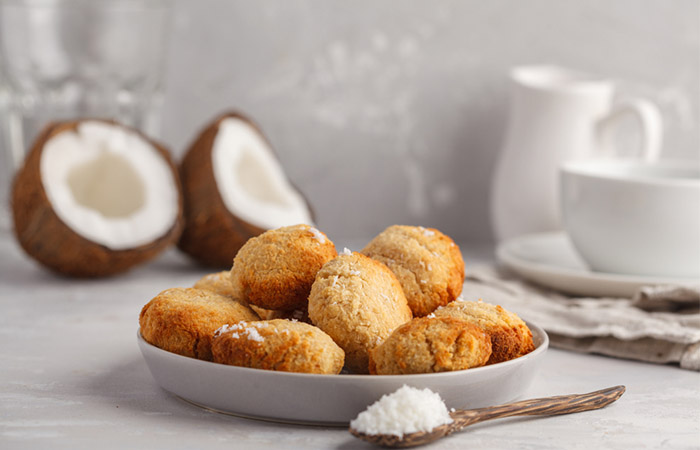
What You Need
- ⅓ cup of coconut oil
- ⅓ cup of almond milk
- 1 tablespoon of vanilla extract
- 1 cup of peanut butter
- 2/3 cup of sugar
- 1 ½ cups of all-purpose flour
- ½ teaspoon of baking soda
- ½ teaspoon of baking powder
- ½ teaspoon of salt
How To Prepare
- Combine coconut oil, milk, and vanilla extract in a small saucepan over low heat.
- Add the peanut butter and sugar to a large mixing bowl. Mix well.
- Stir in the flour, baking soda, baking powder, and salt until the dough comes together.
- Refrigerate the dough for 25 minutes in a covered container.
- Preheat the oven to 350°F. Line a baking sheet with parchment paper.
- Take the dough bowl out of the refrigerator. Roll the dough into balls and place them on the baking sheet. Spread them out on the baking sheets 2 inches apart.
- Make a crisscross pattern by flattening the balls with a fork. Top with sugar.
- Bake for about 13 to 14 minutes or until the edges are firm.
- Place the cookies on a cooling rack and let them cool down before serving.
4. Coconut Oil-Based Cornbread
What You Need
- 1 ½ cup of medium-grind cornmeal
- 1 ½ cup of all-purpose flour
- 1 tablespoon of baking powder
- 1 teaspoon of baking soda
- 1 teaspoon of salt
- 2/3 cup of sugar
- 2 cups of almond milk
- 1 ½ teaspoon of apple cider vinegar
- ½ cup refined coconut oil
How To Prepare
- Preheat the oven to 375°F. Grease a baking pan liberally with coconut oil.
- Combine the cornmeal, flour, baking powder, baking soda, kosher salt, and sugar in a large bowl.
- Whisk together the almond milk and apple cider vinegar. Melt the coconut oil, then add it to the dry ingredients. Mix well.
- Pour the batter into a greased pan.
- Bake for about 30 minutes, or until the center is firm and a toothpick comes out clean.
- Set the cornbread aside to cool completely in the pan. Once cool, invert the pan. Cut and serve.
Both oils have tasty flavors and versatility to be used in different ways, but you should be careful when using them. Below are some factors to watch out for.
Potential Side Effects
Although olive oil has a richer nutrient profile, some people may face problems. Side effects of olive oil include skin problems, inflammation, and diarrhea, among others.
Doebrich says, “Oil is not a low-calorie food and should be enjoyed in moderation. More of a good thing is not always better. Olive oil does not have any known side effects if enjoyed in moderation. Coconut oil is high in saturated fat, and research shows it may increase LDL (bad) cholesterol. If you are at risk for cardiovascular disease, omit using coconut oil.”
Coconut oil may cause not only cardiovascular disease but also other side effects. Coconut oil’s side effects include allergic reactions, diarrhea, and acne breakouts.
Amy Goodrich (MS, RDN) adds, “Coconut oil is saturated fat, and as such can be associated with increased risk for heart disease when used in excess. Using either olive oil or coconut oil in large amounts can also lead to weight gain from increased consumption of calories.”
Consult your healthcare provider if you experience any of these side effects.
An oil’s smoke point is key to determine what type of cooking it is suitable for. On that note, how do the smoke points of coconut oil and olive oil compare? Learn more in the next section.
Smoke Points Of Coconut Oil And Olive Oil
It is important to note that oils with a higher smoke point are more suitable for deep frying while those with a lower smoke point are suitable for shallow frying. Since the smoke point of coconut oil is 350°F, it is suitable for deep frying, roasting, or baking. On the other hand, the smoke point of olive oil is slightly higher with 210°C. This makes it more suitable for shallow frying, emulsion, dips, or salad dressings. You can include both oils in your diet and use them as per your culinary needs.
Coconut Oil Vs. Olive Oil: The Verdict
Olive oil is healthier than coconut oil. Olive oil is richer in nutrients than coconut oil, despite the latter having a wider variety of applications in cooking. Olive oil also contains beneficial fatty acids. Therefore, it would be a good idea for you to replace the coconut oil in your pantry with a bottle of olive oil.
Infographic: 5 Common Health Benefits Of Coconut Oil And Olive Oil
Everyone is aware of the two potent oils, coconut and olive, that have always ruled the beauty and skin care world. While you may have already added one or both of these oils to your skin care routine, remembering their differences and similarities might be tough. We have highlighted the benefits of these two oils, along with their differences and similarities, in the infographic below. Check it out!

Illustration: StyleCraze Design Team
The Bottom Line
Coconut oil and olive oil are highly regarded in many cuisines because of their distinct taste and health benefits. Each of them has a refined and unrefined (virgin) version. Virgin oils are less processed and have higher levels of natural antioxidants. The nutrients in coconut oil and olive oil are similar, but olive oil has a higher concentration of healthier fats and nutrients. Both oils are good sources of antioxidants and can reduce inflammation. Olive oil can lower blood pressure, while coconut oil can treat dental caries. However, both oils have to be used in moderation as they can cause certain side effects in some people. But, overall, olive oil is a healthier alternative to coconut oil.
Frequently Asked Questions
Is coconut oil better than extra virgin olive oil?
Extra virgin olive oil is better than coconut oil. It is because extra virgin olive oil is rich in polyunsaturated fat, whereas coconut oil contains saturated fat.
Do coconut oil and olive oil help with hair growth?
Yes, both coconut oil and olive oil can help with hair growth and reduce hair damage.
Which oil is best for baby massage – coconut oil or olive oil?
Both the oils are suitable for baby massage. However, the practice of using coconut oil for a baby massage is age-old. On the other hand, olive oil has skin moisturizing properties.
Coconut oil and olive oil – which of the two is better in a keto diet?
Coconut oil is mostly used in many keto recipes. However, extra virgin olive oil can also be a healthy addition to the keto diet.
Coconut oil and olive oil – which of the two is better for weight loss?
Olive oil is better for weight loss compared to coconut oil. Coconut oil has saturated fat, which may trigger weight gain in some.
Key Takeaways
- Coconut oil contains 92% of saturated fats and can be used for shallow frying. On the other hand, olive oil has high mono and polyunsaturated fatty acids and can be used for sauteing, dressing, and drizzling.
- Coconut oil can promote skin and hair health and combat many infections, whereas olive oil improves cardiovascular health and lowers blood pressure.
- Although olive oil is healthier than coconut oil, the latter has a wider variety of applications in cooking.

Image: Stable Diffusion/StyleCraze Design Team
Which oil is the best for you? Find out in this video as we compare coconut oil and olive oil and see which one is healthier and more beneficial for your diet.
Personal Experience: Source
StyleCraze's articles are interwoven with authentic personal narratives that provide depth and resonance to our content. Below are the sources of the personal accounts referenced in this article.
i. The Truth About Olive Oilhttps://keycellularnutrition.medium.com/the-truth-about-olive-oil-e2aca623d321
ii. I LEFT COCONUT OIL IN MY HAIR OVERNIGHT | COCONUT OIL FOR HAIR BEFORE AND AFTER RESULTS
https://www.youtube.com/watch?v=shr5uyi9iqk
References
Articles on StyleCraze are backed by verified information from peer-reviewed and academic research papers, reputed organizations, research institutions, and medical associations to ensure accuracy and relevance. Read our editorial policy to learn more.
- Health Effects of Coconut Oil—A Narrative Review of Current Evidence
https://www.tandfonline.com/doi/abs/10.1080/07315724.2018.1497562 - Preventing cancer cardiovascular disease and diabetes: a common agenda for the American Cancer Society the American Diabetes Association and the American Heart Association
https://pubmed.ncbi.nlm.nih.gov/15220271/ - Olive
https://link.springer.com/chapter/10.1007/978-0-387-77594-4_13 - Potential Health Benefits of Olive Oil and Plant Polyphenols
https://www.mdpi.com/1422-0067/19/3/686/htm - FoodData Central
https://fdc.nal.usda.gov/fdc-app.html#/food-details/330458/nutrients - FoodData Central
https://fdc.nal.usda.gov/fdc-app.html#/food-details/171413/nutrients - Chemical composition and health benefits of coconut oil: an overview
https://onlinelibrary.wiley.com/doi/abs/10.1002/jsfa.10870 - Physicochemical properties antioxidant capacities and metal contents of virgin coconut oil produced by wet and dry processes
https://www.ncbi.nlm.nih.gov/labs/pmc/articles/PMC6060898/ - Antioxidants in Extra Virgin Olive Oil and Table Olives: Connections between Agriculture and Processing for Health Choices
https://www.ncbi.nlm.nih.gov/labs/pmc/articles/PMC7023406/ - In vitro anti-inflammatory and skin protective properties of Virgin coconut oil
https://pubmed.ncbi.nlm.nih.gov/30671361/ - Molecular mechanisms of inflammation. Anti-inflammatory benefits of virgin olive oil and the phenolic compound oleocanthal
https://pubmed.ncbi.nlm.nih.gov/21443487/ - Antimicrobial effects of virgin coconut oil and its medium-chain fatty acids on Clostridium difficile
https://pubmed.ncbi.nlm.nih.gov/24328700/ - Measuring the Antimicrobial Activity of Lauric Acid against Various Bacteria in Human Gut Microbiota Using a New Method
https://www.ncbi.nlm.nih.gov/labs/pmc/articles/PMC6923562/ - In vitro antimicrobial properties of coconut oil on Candida species in Ibadan Nigeria
https://pubmed.ncbi.nlm.nih.gov/17651080/ - Antibacterial Activity of Three Extra Virgin Olive Oils of the Campania Region Southern Italy Related to Their Polyphenol Content and Composition
https://www.ncbi.nlm.nih.gov/labs/pmc/articles/PMC6780878/ - Antifungal Activity of Cinnamon Oil and Olive Oil against Candida Spp. Isolated from Blood Stream Infections
https://www.ncbi.nlm.nih.gov/labs/pmc/articles/PMC5028442/ - Olive Oil and Cardiovascular Health
https://journals.lww.com/cardiovascularpharm/Abstract/2009/12000/Olive_Oil_and_Cardiovascular_Health.3.aspx - The Comparative Antimicrobial Effect of Activated Virgin Coconut Oil (AVCO) and Virgin Coconut Oil (VCO) against Dental Caries-Related Pathogens
https://www.researchgate.net/profile/Zurainie-Abllah/publication/323656123_The_Comparative_Antimicrobial_Effect_of_Activated_Virgin_Coconut_Oil_AVCO_and_Virgin_Coconut_Oil_VCO_against_Dental_Caries-Related_Pathogens/links/5aa224eb0f7e9badd9a591b9/The-Comparative-Antimicrobial-Effect-of-Activated-Virgin-Coconut-Oil-AVCO-and-Virgin-Coconut-Oil-VCO-against-Dental-Caries-Related-Pathogens.pdf - Comparative Evaluation of Antiplaque Efficacy of Coconut Oil Pulling and a Placebo Among Dental College Students: A Randomized Controlled Trial
https://www.ncbi.nlm.nih.gov/labs/pmc/articles/PMC5713846/ - Olive Oil Polyphenols Decrease Blood Pressure and Improve Endothelial Function in Young Women with Mild Hypertension
https://academic.oup.com/ajh/article/25/12/1299/231681?login=true - Oleic acid content is responsible for the reduction in blood pressure induced by olive oil
https://www.pnas.org/doi/abs/10.1073/pnas.0807500105 - Virgin olive oil reduces blood pressure in hypertensive elderly subjects
https://www.sciencedirect.com/science/article/abs/pii/S026156140400024X - Coconut oil and palm oil’s role in nutrition health and national development: A review
https://www.ncbi.nlm.nih.gov/pmc/articles/PMC5044790/







